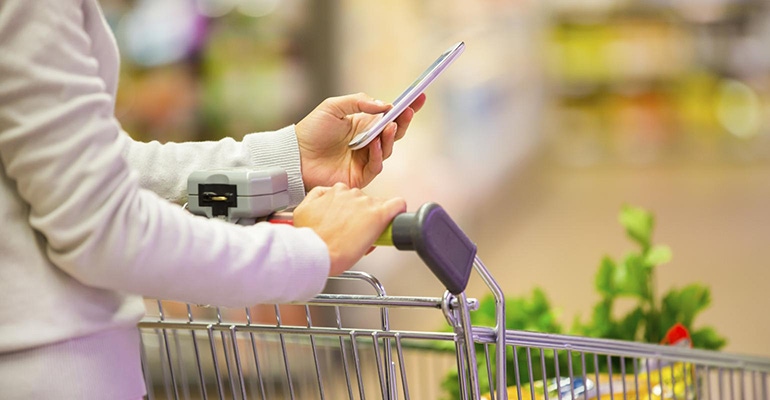New technology continues to disrupt the grocery retail sector and help relieve shopper pain points in the wake of COVID-19.
May 19, 2020

Companies worldwide are helping supermarkets meet the fast-paced rise in demand for online grocery deliveries following stay-at-home orders.
One of the biggest pivots for retailers has been catering to shoppers with specific dietary requirements, with a rise in allergies and intolerances in addition to ingredient-conscious consumers who are seeking out new ways to support their immune systems during the current health crisis.
Markus Stripf, the co-founder and CEO of Spoon Guru, which harnesses the power of AI to transform food transparency, is helping heavyweight retailers worldwide through these unprecedented times. Here, Stripf shares several insights on how his technology can support the retail sector in 2020 and beyond.
Prioritize immunity support
Although there is no magic silver bullet guaranteed to boost immunity health, there are ways retailers can help consumers search for foods that optimize their immune system.
As the immune system is regulated by the food we eat, healthy diets can optimize consumers' immune response. Foods rich in zinc, probiotics, antioxidants and vitamin C are key to supporting the gut, which is responsible for 70% of the immune system.
Get ready for the rise of 'microfarms'
With consumers more conscious than ever before about what they are eating, supermarkets are likely to begin implementing in-store microfarms. Retailers will allocate floor space to farmers who can then grow produce in the store itself.
Farmers can grow everything from tomatoes and lettuce to berries and mushrooms in temperature-, pesticide- and food safety-controlled tiny farms which gives shoppers access to the freshest and most nutritious produce on the market.
Flexitarianism is the diet of the decade
Flexitarian diets will lead the way and put more plant-based products on grocery store shelves—with a twist. As consumers seek cleaner, shorter and greener ingredient lists, there will be a shift toward products that offer benefits beyond being plant-based. For example, for sustainability or health (or both). Products that emphasize brain health, bone health and add in vitamins such as D and K will also grow in popularity.
Recent Nextatlas research found that Americans are eating less meat and fish than they were two years ago, and 32% plan on reducing their meat consumption even further over the next two years.
Dry 2020 is here
As more people focus on flavor first and alcohol content second thanks to a reprioritization of health coupled with the launch of new and innovative non-alcoholic brands, the alcohol section of stores will have to be reimagined.
Social movements such as Dry January and Sober Spring will continue to grow in importance backed by the science that less is more when it comes to alcohol—health-wise, that is. 2020 is on track to be the year of the mind-body connection as consumers grow to understand that we are what we eat and drink.
The new sweet spot has less sugar
We will also see an increase in "less is more" with regard to all things sugar. As new nutritional labels call out added sugars, retailers and brands will continue promoting low- or no-sugar foods and beverages and receive more attention for this from the press.
Following a study that found only 28% of US shoppers say that they have a good understanding of salt, fat and sugar content in their food, this decade is poised to be about re-education to inform consumers' dietary decisions.
Shoppers will begin to understand the benefits and drawbacks of replacing sugar with alternatives currently on the market. New research from the University of Kansas has found that consuming foods with a high ratio of added sugars could trigger metabolic, inflammatory and neurobiological processes that are linked to depression.
Collaborative auto-replenishment is poised to win
In the near future there will also be a battle between in-store shopping and auto-replenishment. Smart kitchen appliances will let consumers (and retailers) know when certain products need to be replenished, and retailers will begin to subsidize these costly appliances to lock in customers for multi-year guarantees of purchasing activity.
Source: Spoon Guru
You May Also Like


